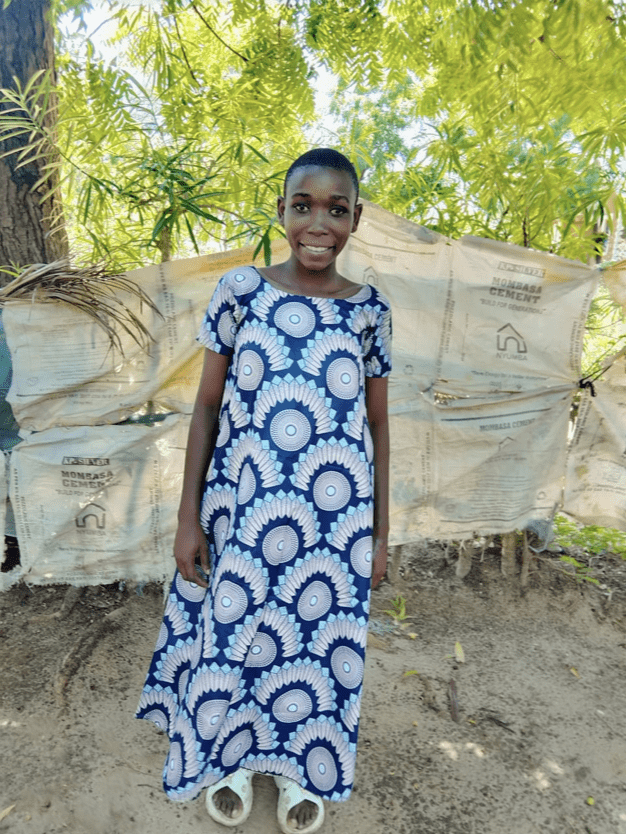Mishi’s Story: Health Through the Power of Advocacy
Posted on July 22, 2025
Oftentimes, due to stigma in low- and middle- income countries that view disabilities as the result of a curse, children with disabilities are more likely to be denied the safe and accessible healthcare they deserve. According to the World Health Organization, people with disabilities are three times more likely to be denied healthcare and four times more likely to be treated poorly by the healthcare system. It can be challenging for caregivers to get them the help they need. When Mishi experienced a serious illness, it fell to her aunt to secure the medical care she required. With help from Kupenda’s counseling sessions, Mishi’s aunt knew exactly what to do.
Mishi’s Early Life
Mishi was born hard of hearing twenty-two years ago. At a young age, her father passed away, and she was abandoned by her mother. Left alone as a toddler with a disability, Mishi moved in with her aunt and has lived with her ever since. She is now enrolled in a local school and is currently in grade 4.
Overcoming Illness
In her most recent school term, Mishi developed a cough but continued with her studies until she returned home for the holidays. It was then that her aunt noticed her ongoing symptoms. Mishi was becoming increasingly ill, and the cough was preventing her from sleeping. Mishi’s aunt knew to take her to the hospital for a workup. Mishi was diagnosed with tuberculosis and immediately started on medication and intervention. Thanks to this timely intervention, Mishi’s tuberculosis is now under control, her cough has subsided, and she is feeling much stronger!
Kupenda’s Impact on Mishi’s Life
Responding to tuberculosis in a timely and efficient manner is important for preventing prolonged symptoms and long-term consequences, as well as stopping its spread. Mishi’s aunt taking her to the hospital straightaway was crucial to Mishi’s strong recovery. Mishi’s aunt knew what to do in part because of her counseling sessions with Kupenda. Kupenda provides family and individual counseling to those affected by disabilities, covering critical topics, such as access to medical care, education, and inclusion. Because Mishi’s aunt had participated in these sessions, she felt more capable of advocating for Mishi’s needs, and she knew to take her directly to the hospital. She saved Mishi’s life and stopped any further tuberculosis transmission. Upon reflection, Mishi’s aunt said,
“Thank you so much, [Kupenda], for empowering me to better advocate for the rights of my child.”
Continuing Empowerment
Mishi’s story shows that empowering caregivers can lead to improved health for children with disabilities. Mishi’s story could have had a different outcome if it wasn’t for her aunt noticing her symptoms, taking her to the hospital, and advocating for intervention.
Would you consider empowering children with disabilities and their caregivers to ensure they are getting the best medical care? Your support can ensure that more children with disabilities receive the accessible care they need and deserve.
Want to keep updated on Kupenda’s work?
Follow us on Facebook, Instagram, LinkedIn, YouTube, and X.
Learn more about Kupenda in our podcast.
Sign up for our newsletter.
Or provide a child scholarship for just $35 / month.




Leave a Reply